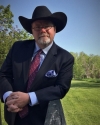- Winter 2023
Syllabus Description:
The finalized syllabus (as of Dec 18, 2022) for Winter 2023 can be on the syllabus page, along with tips for academic success.
This course takes a panoramic view of religion and politics, focusing on several historical periods and world regions. More than an emphasis on theologies or beliefs, we will examine religious organizations and how they interact with state structures. As such, the more appropriate title for the course might be "Church & State in World History," with "church" being a generic simplifying term that includes synagogue, mosque, temple, etc. Our goal is to understand how various religious institutions, actors and values affect political behavior, and, conversely, how the political actors and institutions affect religious practice. This course will also take a "political economy" perspective to the study of religion, religious institutions, politics, and governments. The emphasis will be on how humans interact with the incentive structures in their environment. Hopefully, not only will you learn empirical content related to religion and politics, but you will pick up concepts related to "the economic way of thinking."
Given the limitations of the 10-week quarter system, we will not be able to cover all the important questions raised in the study of religion and politics around the world, nor will we cover all religious traditions equally. Please be advised of this. Such a course would only be able to address deeper theoretical issues in a superficial manner, substituting depth for breadth. Readings and lectures will be drawn largely from the Christian experience, though we will touch upon Islam and Judaism at points in the class. The intention of the professor is to provide you with a basic familiarity with the literature and, more importantly, the intellectual tools to pursue your own studies of the subject matter.
IMPORTANT NOTICE
This course will involve discussion of various religious denominations, faith traditions, and societies. We will take a critical look at all of these institutions, which means examining their merits and flaws. If you feel uncomfortable listening to and/or participating in such a discussion, you may want to consider enrolling in another course. It is the underlying assumption of both the professor and many of the authors on the syllabus that humans are complex animals and have been known to do amazingly kind things as well as having participated in horrific actions. All societies, throughout time and across space, set high standards of behavior through various systems of religious and secular moral codes. However, people frequently fall short of those expectations, and social science, in large part, delves into the reasons for these shortcomings. This is not merely a characteristic of one particular culture but is shared across all societies. Social science is also interested in the comparative successes of differing institutions and ideas; some institutional structures and intellectual constructs promote better outcomes on various dimensions than others. Our desire to set high standards, and our (in)ability to often achieve them, is what makes us uniquely human. Being prepared to hear and listen to critical approaches of institutions and ideas that one may hold dear is part of the college experience. One of the main goals of a college education is to expose you to different ideas, even ones that may seem discomforting. College is a place for you to challenge long-held notions and understand that in a world with nearly eight billion people, there undoubtedly will be disagreement. The role of the scholar is to understand and tolerate those disagreements. If you are uncomfortable with disagreement, you may want to choose another course.
Grading will consist of two essay exams, section participation and questions, and a short analytical essay. Please note that Prof. Gill considers meeting deadlines as an essential skill in this course, and you are being evaluated on your ability to turn in work on time.
Textbooks include:
Witham, Larry. 2010. Marketplace of the Gods: How Economics Explains Religion. Oxford: Oxford University Press.
Koesel, Karrie. 2014. Religion and Authoritarianism: Cooperation, Conflict, and the Consequences. Cambridge: Cambridge University Press.
Gill, Anthony. 2007. The Political Origins of Religious Liberty. Cambridge: Cambridge University Press.
Berman, Eli. 2009. Radical, Religious, and Violent: The New Economics of Terrorism. Boston: MIT Press. (The 2011 paperback reprint is acceptable too.)
Kuran, Timur. 2004. Islam & Mammon: The Economic Predicaments of Islamism. Princeton: Princeton University Press.
Prof. Gill was the recipient of the UW Distinguished Teaching Award in 1999.
